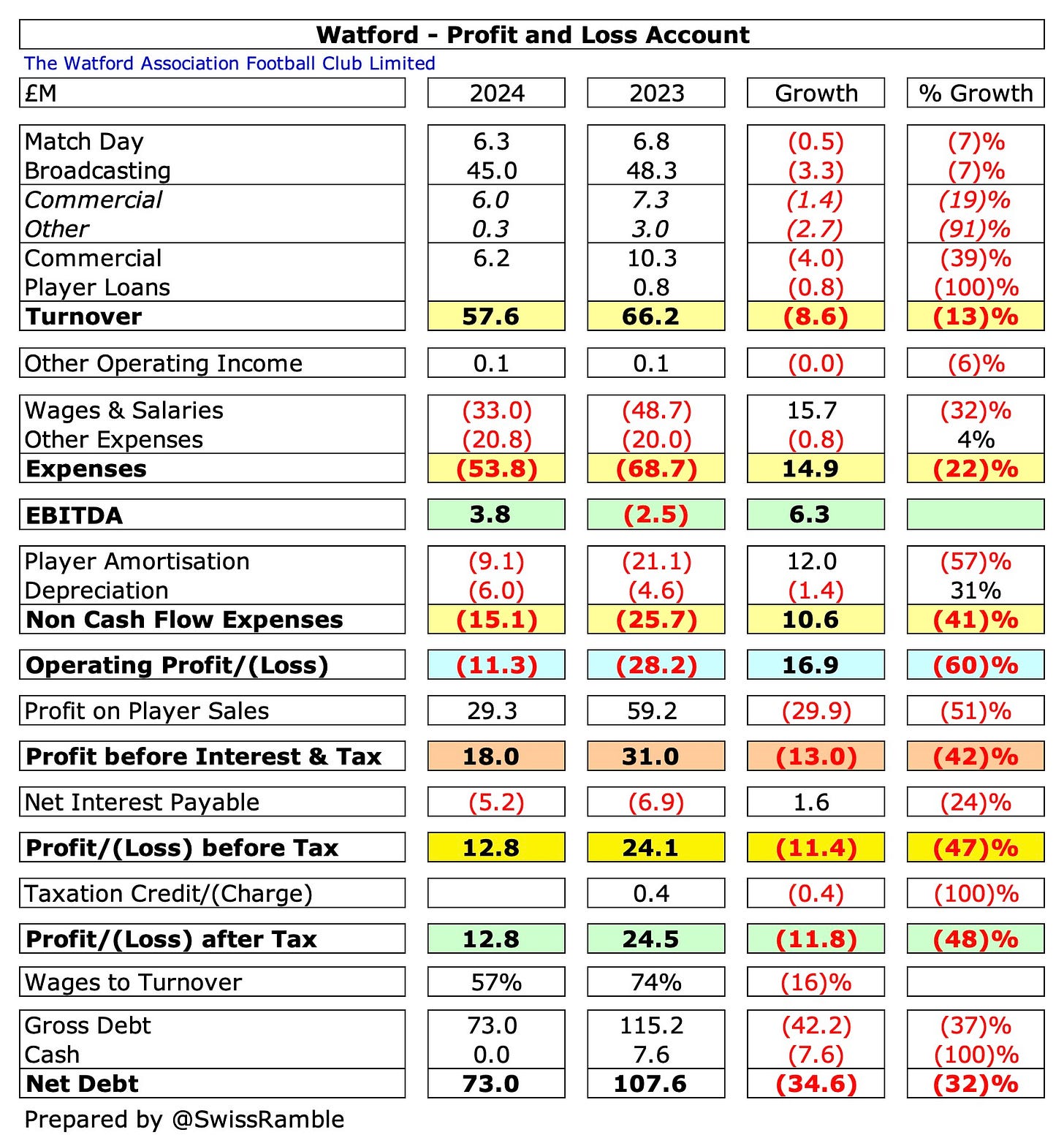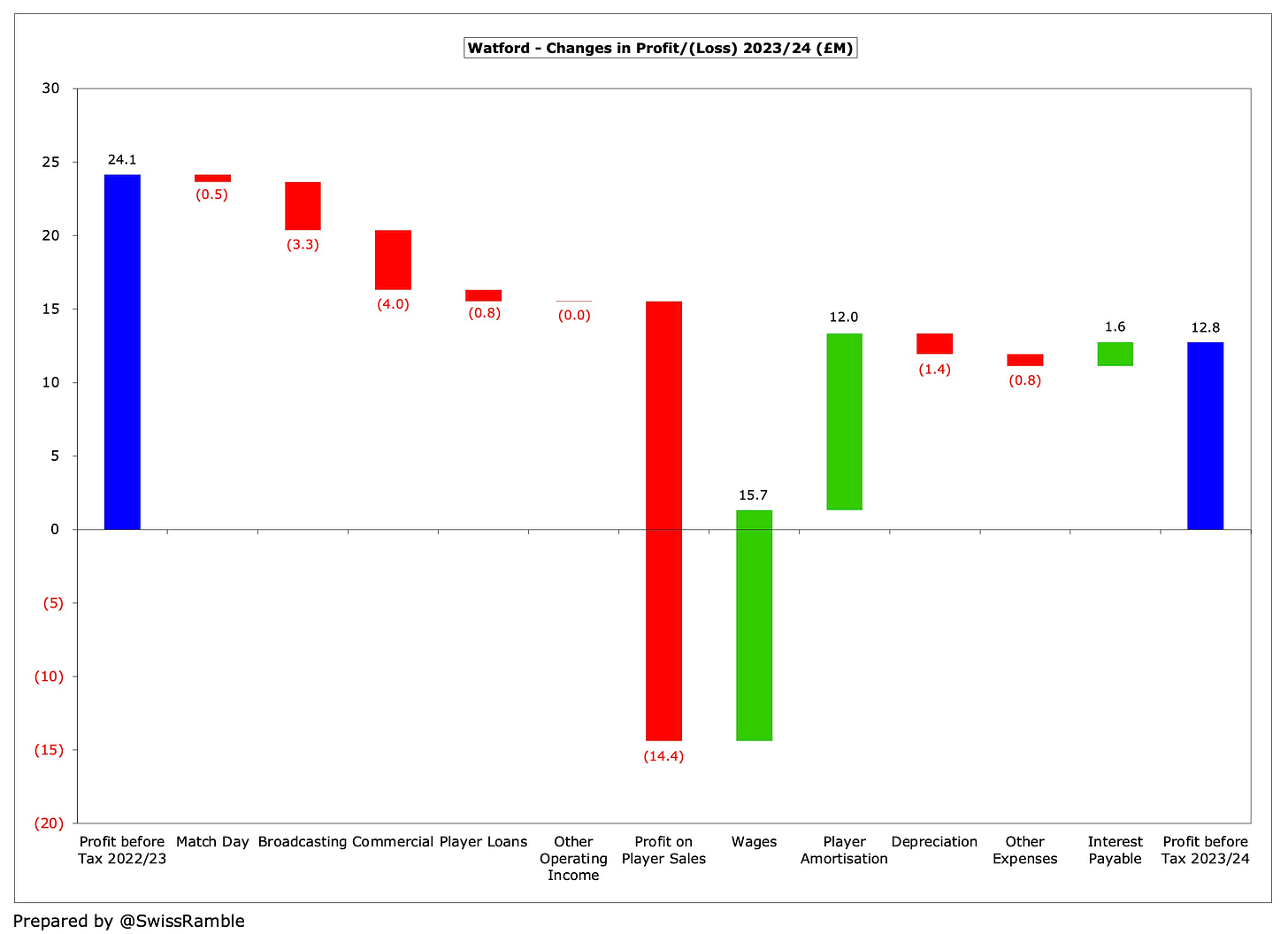Watford’s 2023/24 financial results covered their second season in the Championship following relegation from the Premier League, when they dropping from 11th to 15th. Boosted by parachute payments, relegated clubs often bounce back quite quickly, though the Hornets have struggled.
There was the usual change in management last season, as Valérien Ismael was sacked in March 2024 after a run of only one win in ten league games, replaced by former Watford player Tom Cleverley taking on the head coach role for the first time.
Despite going through managers like a hot knife through butter, Watford have actually done pretty well on the pitch, at least until the recent blip, as they have played in the Premier League in six out of the last nine seasons.
However, they’re now in for a real challenge, as they no longer benefit from parachute payments, which will put a major dent in their income, so let’s take a look at the state of Watford’s finances.
Profit/(Loss) 2023/24
Watford’s pre-tax profit almost halved from £24.1m to £12.8m, mainly due to a significant reduction in profit on player sales from £59m to £29m, though revenue also fell £8.6m (13%) from £66.2 to £57.6m.
This was partially compensated by a £25m (27%) decrease in operating expenses from £94m to £69m, as the club “implemented several cost saving initiatives and made efficiencies across the business”.
As a result, Watford posted a large profit for the second year in a row, though this was again driven by player trading, as their operating loss was £11m..
Broadcasting fell £3.3m (7%) from £48.3m to £45.0m, as the parachute payment was lower in the second year after relegation from the Premier League.
However, the largest year-on-year decrease was actually in commercial, which dropped by more than a third (£4.1m) from £10.3m to £6.2m, while match day was down £0.5m (7%) from £6.8m to £6.3m.
There was also no repeat of the previous season’s £0.8m income from player loans, so every revenue stream was lower.
Watford more than compensated for the lower revenue with a steep reduction in staff costs. The wage bill was cut £15.7m (32%) from £48.7m to £33.0m, while player amortisation more than halved, falling £12.0m from £21.1m to £9.1m.
Keep reading with a 7-day free trial
Subscribe to The Swiss Ramble to keep reading this post and get 7 days of free access to the full post archives.







